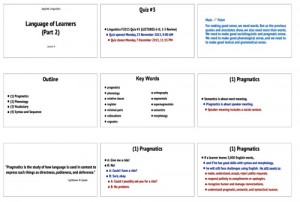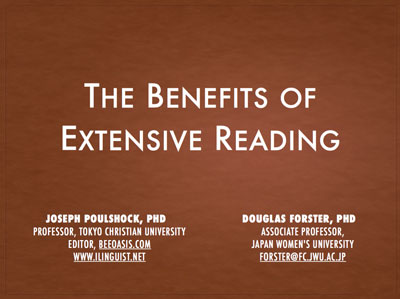 In case the Moodle download is not working, here is the PDF for my lecture on Improving Language Teaching.
In case the Moodle download is not working, here is the PDF for my lecture on Improving Language Teaching.
Even with language focused lessons, we can (1) begin with a meaningful event or stimulus, and (2) we can keep lessons focused on meaning by knowing the traits or principles of communicative activities and (3) the four faces of communicative competence. (4) By knowing these things, we can take dull language-focused lessons and make them more meaningful and communicative.



